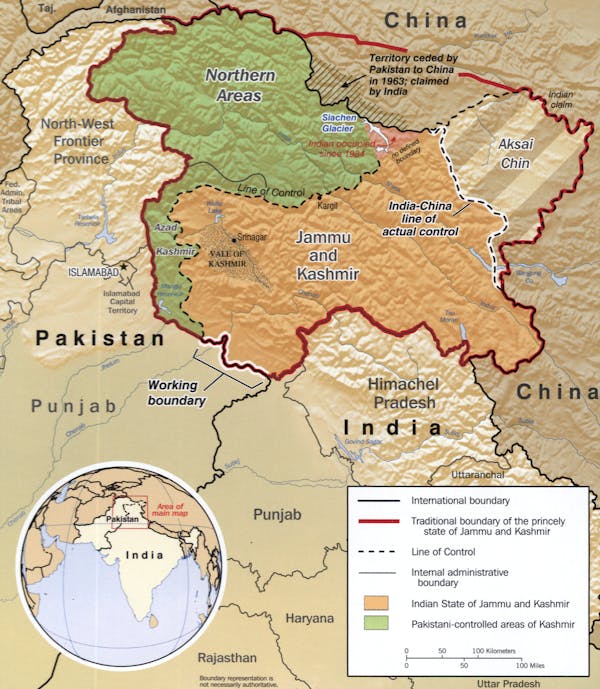by ASHRAF JEHANGIR QAZI

India calls the Kashmiri freedom struggle ‘terrorism’ although armed struggle is an inalienable right of people under forcible occupation. Musharraf’s four-point proposal had promised a principled compromise settlement.
Old ‘principled’ view: India is priority for Pakistan’s foreign policy. It is the principal adversary and only country with which we have gone to war. It has brutally repressed the people of Kashmir and illegally annexed the disputed territory of IHK, thereby terminating comprehensive structured dialogue with Pakistan.
Pakistan’s irresponsible and unforgivably corrupt governance, and the opportunism of the international community allow India to escape censure. While the international human rights community condemns India’s crimes in Kashmir, the big powers prioritise state interests over law and morality. Pakistan’s pathetic image, moreover, negates the cogency of its arguments.
Pakistan is a party to the Kashmir dispute. It regards the Kashmir Valley as its ‘jugular vein’ as its people would have opted to join Pakistan were they able to exercise their right to self-determination.
Pakistan fought three wars with India over Kashmir, which failed to produce the desired results. Tashkent brought no relief and hastened the end of Ayub Khan. Shimla extricated Pakistani prisoners of war but at the cost of effectively ‘bilateralising’ the dispute.
Subsequently, the Kargil conflict, instigated by the usual suspects after Vajpayee’s historic visit to Lahore, compelled a nonplussed Nawaz Sharif to rush to the US to beg for the safe withdrawal of Pakistan’s forces from an impossible situation. This transformed the LoC into a de facto border. Pakistan paid a huge price in blood, treasure, diplomatic isolation, and the perception of a failing state.
More recently, Pakistan downgraded relations with India after it annexed IHK on Aug 5, 2019, unilaterally changing its status in violation of UN Security Council resolutions and the Shimla Agreement. This rendered the LoC moot as it issued from the agreement.
By claiming to have resolved the Kashmir dispute forever, India destroyed the basis for dialogue with Pakistan. This was a demand for a Pakistan surrender even more ignominious than in Dhaka in 1971. India, moreover, arrested the entire Muslim leadership of the Valley and intensified its repression to the extent that Genocide Watch issued two ‘genocide alerts’.
While a misgoverned and isolated Pakistan was no longer able to counter India’s unilateralism and repression there was never any reason to meekly accept its fait accompli. The right to self-determination is not a gift from Pakistan to Kashmir. It is the inalienable right of the Kashmiri people.
UN resolutions affirm the disputed status of Kashmir, and Pakistan as a party to the dispute. Accordingly, it has an absolute obligation to uphold and support the rights of the Kashmiri people in every legitimate way.
Despite its rhetorical declarations of support, Pakistan has, in fact, de-prioritised support for the Kashmiri freedom struggle. As a result, the Kashmiri people on both sides of the LoC today probably prefer independence to a failing Pakistan. Kashmiri independence, however, is opposed by both India and Pakistan.
It was, however, dangled before the Kashmiris by a former Pakistan prime minister. That risked complicating relations with China, which is Pakistan’s most effective counter to India.
Can forsaking principled positions stem the tide of failure engulfing Pakistan? Can acting as a defeated state stabilise Pakistan? Can such a Pakistan elicit or manage $17 billion for a ‘Living Indus Initiative’?
Given that confrontation and conflict with India are no longer options, is unprincipled surrender the only alternative? Has Modi shown any inclination to consider resolving the respective ‘core issues’ of Kashmir and ‘terrorism’ through dialogue and compromise, which could usher in a mutually beneficial relationship?
Dawn for more
